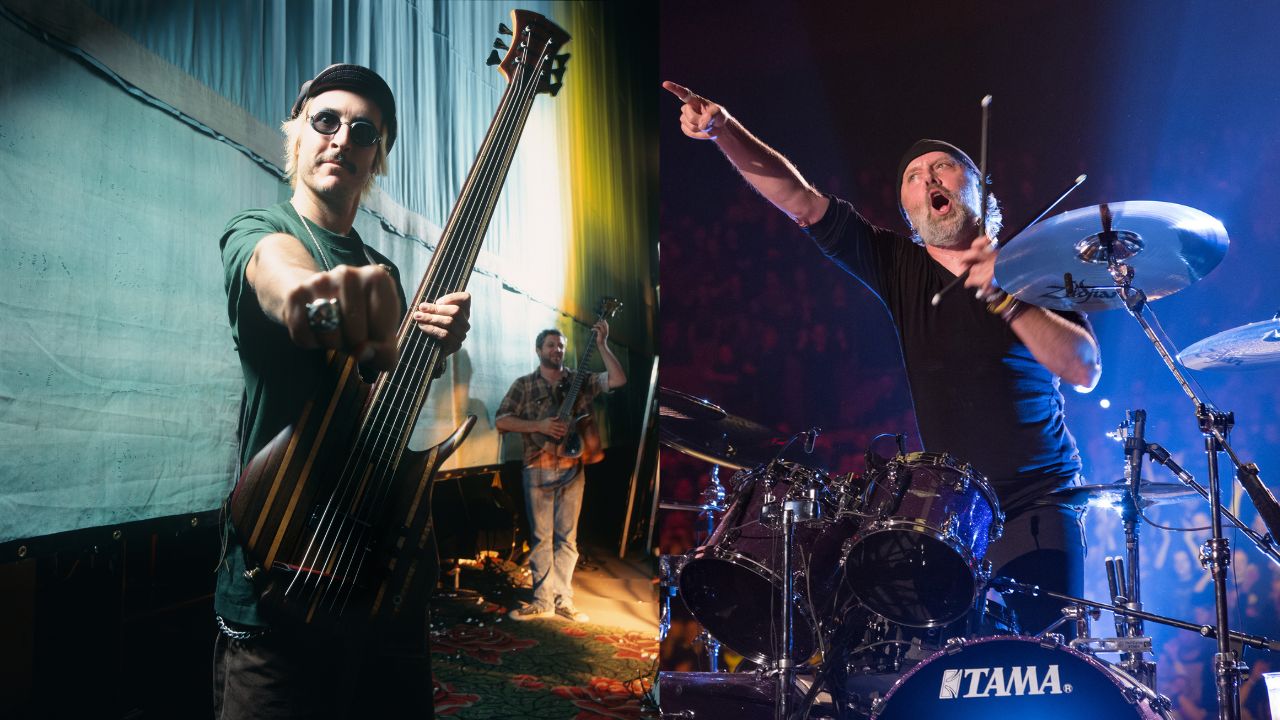
If Jaco Pastorius was the greatest bass player who ever lived, then Les Claypool – bassist, banjoist, sometime Metallica wannabe, producer, novelist and low-end guest to the stars – is surely the most likely contender to his throne. Frontman with the perennially remarkable funk-rock band Primus and a whole string of side-projects including Sausage and Oysterhead, Claypool is best known for his stunning slap-and-pop technique which, combined with near-impossible speed and eccentricity on a host of fretted, fretless, whammy-barred and multi-stringed instruments, leaves all but the world's best bass players in the shade.
But Claypool is no mindless shredder. Technique is only an adjunct to feel in his philosophy, with the butt-shaking groove of his playing the mainstay of his approach. In 1986 Claypool got the chance to audition for Metallica following the death of bassist Cliff Burton following a horrific bus accident. Although the perfect replacement eventually came in the form of Jason Newsted.
In 2005, Claypool was asked about his audition. “I can't really remember what songs we played, but I didn't fit in, that was really obvious,” he told BP. “I believe Lars said. ‘You're not really used to this kind of music, are you?’ My first response was, goddamn, this is loud! And then I asked them if they wanted to jam on an Isley Brothers tune, just as a joke. which they didn’t think was very funny.”
Was Claypool serious about wanting to join? “Back in 1986 I was a carpenter and would have joined any band that paid me! At the time I think it would have been a fantastic, fun thing to do, but I'm incredibly glad it didn't happen. Kirk Hammett's an old high-school friend of mine, so he called me. He used to give me guitar magazines and was the guy who turned me on to Hendrix.”
Claypool was later asked by Kerrang! whether the rumours were true that when he auditioned, Metallica frontman James Hetfield rejected him on the basis of the bassist being too talented for the role. “No, it wasn't that – I just didn’t fit in. I had a blonde Mohawk and baggy skater pants and two different coloured tennis shoes – and this was back when they had long hair long hair and tight pants. I was talking to James a few years ago, and he'd said in this Behind The Music documentary on Metallica that I was too good. I told him he was full of it, and thought I was a freak! That was why he didn't want me! And he just laughed, because it was true. I wouldn't have fit. They're not dumb.”
Listening to Claypool play with Primus , there’s no shortage of virtuosity on show. He slaps, taps, and strums his Carl Thompson bass to produce a frenetic whack-fest while hardly wasting a note. “My style in Primus evolved from me consciously trying to play bass and rhythm guitar at the same time, at least at the beginning. Primus was all about doing something that nobody had ever heard before, and the guitar players I used were textural players. I wasn't really used to playing with regressive players who wanted the bass to stay in the background. I was more into Adrian Belew and Robert Fripp and Andy Summers, who were textural. Primus's guitarist Larry Lalonde was exactly the same way.”
Ironically, Cliff Burton was also an incredibly elaborate player. “Cliff was, and I think he would have gone on to be one of the superheroes of the bass. He really had charisma, not only from his personality, but from his playing.”
After so many years at the low-end, what wisdom does Claypool have to offer the world of bass? “I tell young players all the time to play with as many different people as possible, because there are so many different approaches to music and so many cultures. Until you're dead, you're always learning - unless you're a close-minded individual who just plays the same thing over and over again. Unfortunately, the majority of people are!”







